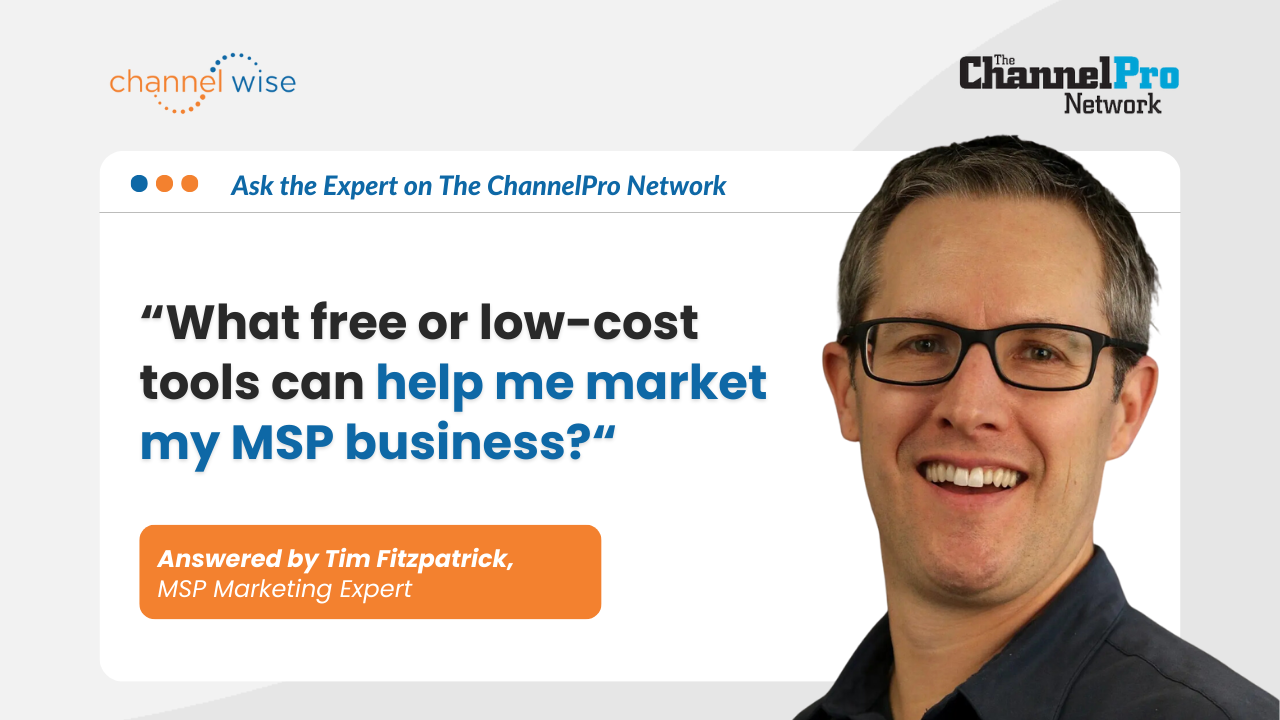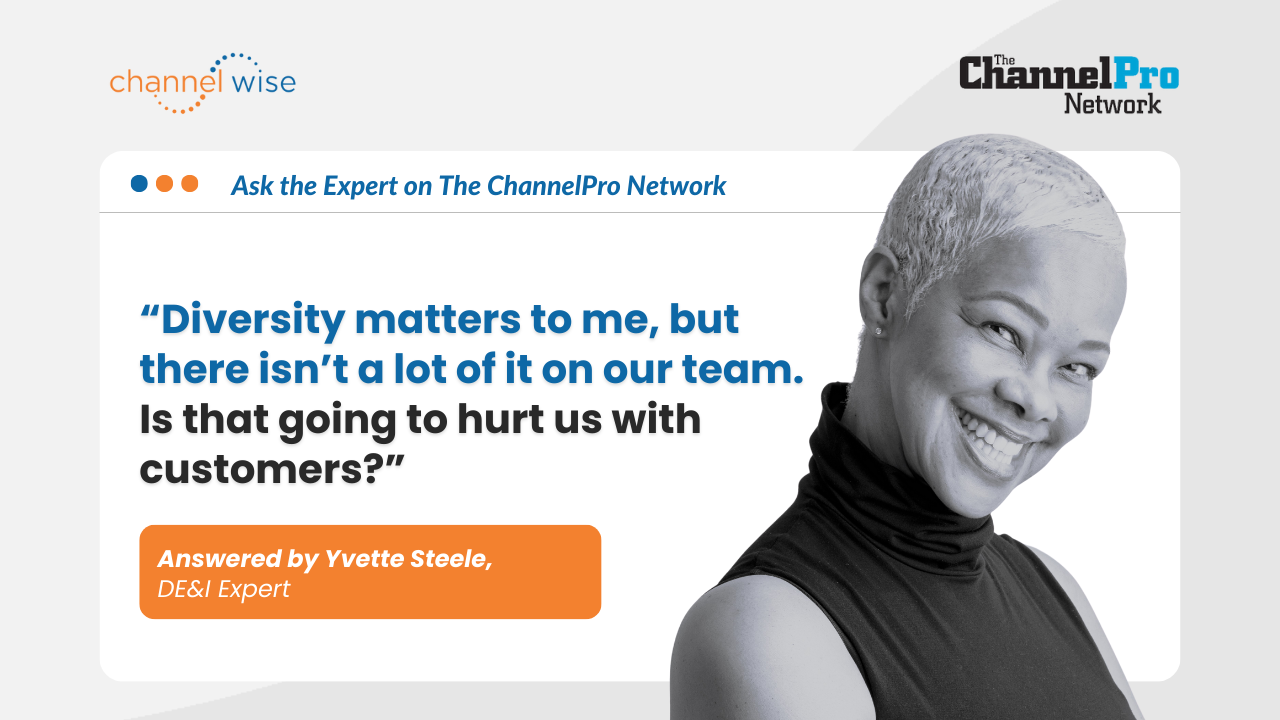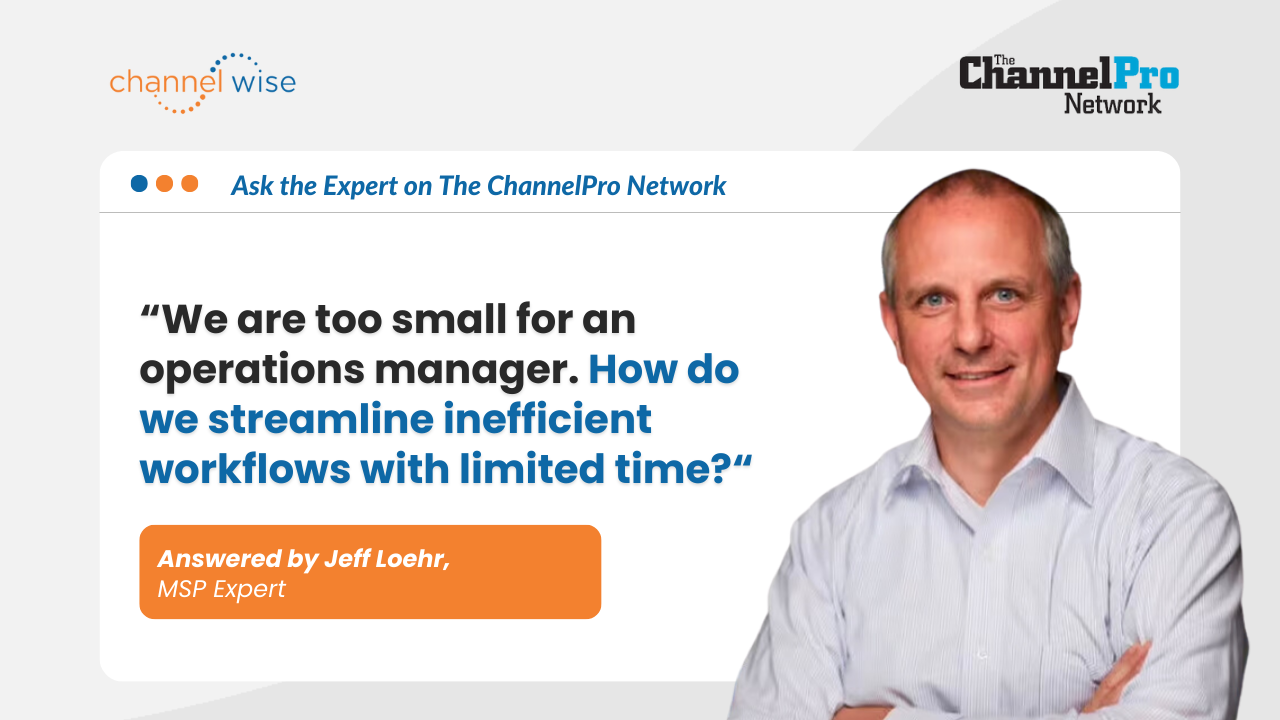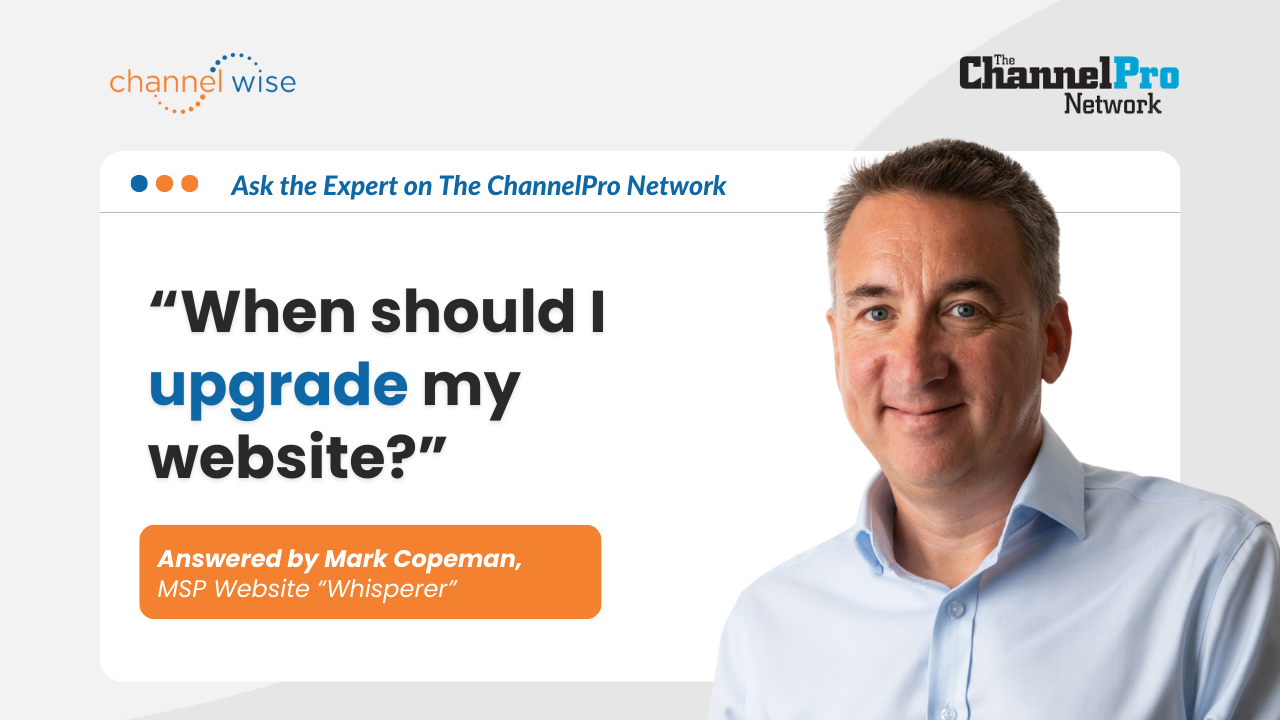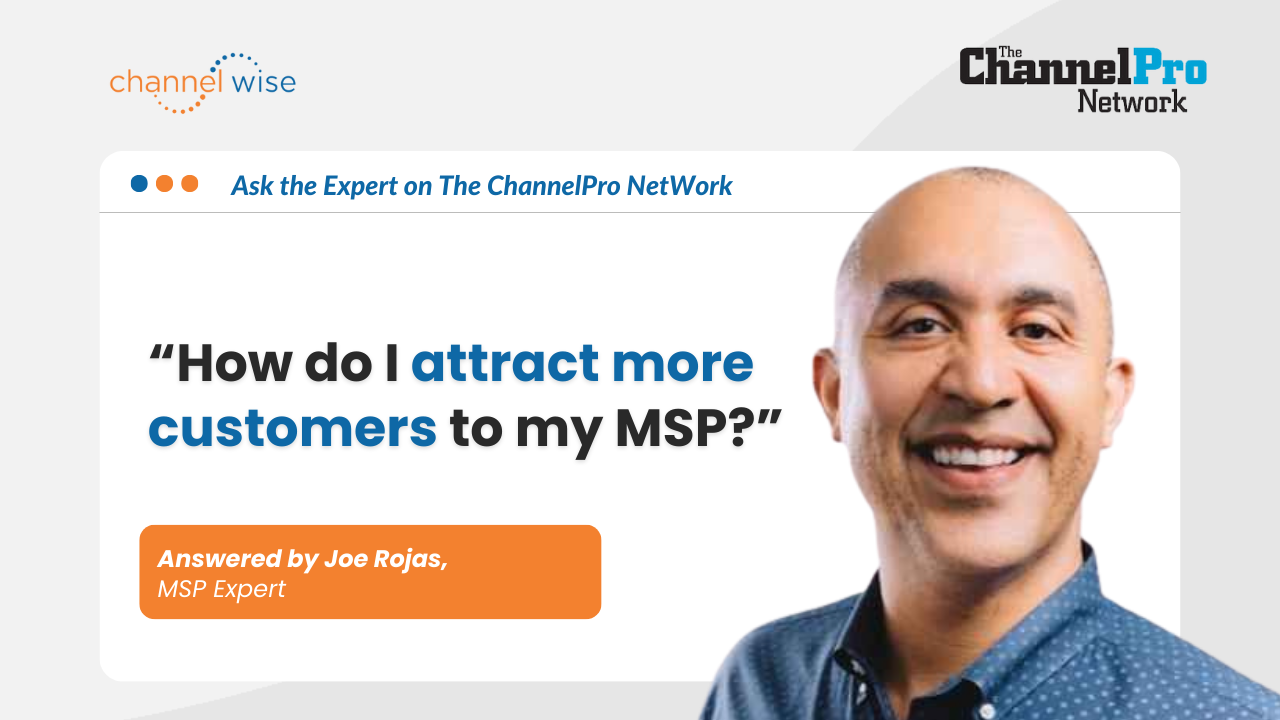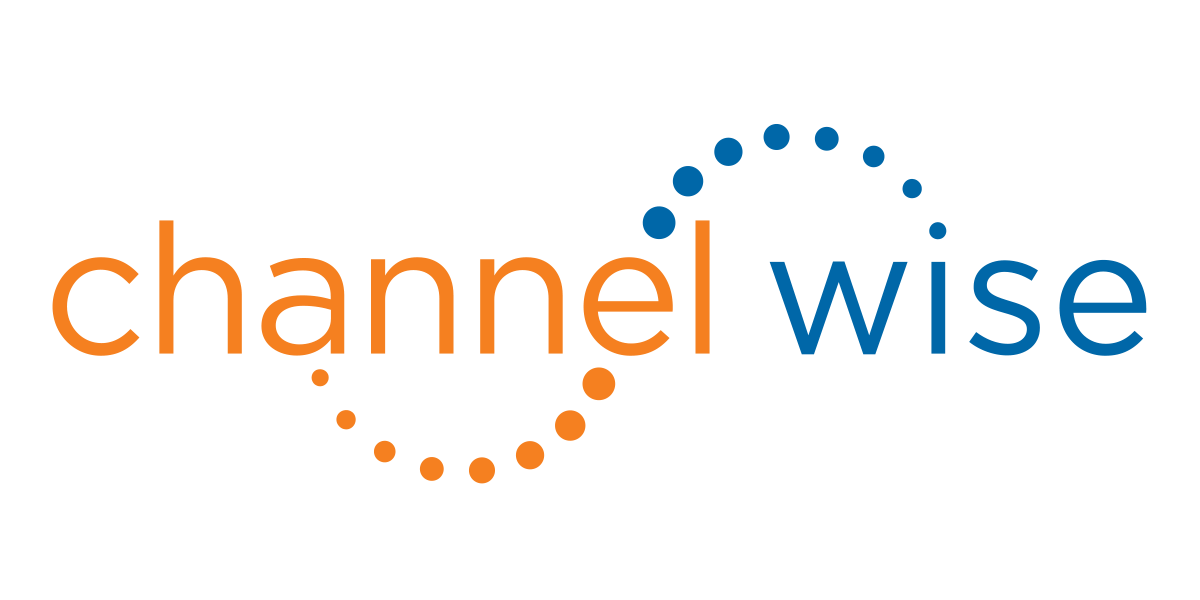How to Build an Effective MSP Channel Program by Erick Simpson
Replay:
In this Ask the Expert episode, Kathryn Rose, CEO and founder of channelWise, delves into the intricacies of channel programs with Erick Simpson, a recognized authority in the MSP sector.
As businesses increasingly seek opportunities within the Managed Service Provider (MSP) channel, understanding its nuances becomes crucial. Erick's insights offer a roadmap for companies eager to harness the potential of this dynamic market.
Highlights:
- Channel programs have evolved to better align with MSP needs, including the rise of collaborative ecosystems.
- Companies enter the MSP channel for growth but must be strategic, focusing on key metrics and long-term plans.
- A strong Unique Value Proposition is essential for capturing the attention of MSPs, their staff, and end customers.
How have the channel and channel programs evolved over the years?
Channel programs have seen a significant transformation over the years. There weren't many "MSP-friendly" channel programs in the early days. Vendors largely didn't understand the managed services model, and pricing was often based on how much they bought rather than aligning with the MSP's subscription-based revenue model. This presented challenges for MSPs who had to invest large amounts upfront.
Fast forward to today, and vendors have become much more savvy about the MSP business model. They now offer various support services like consumption-based pricing, marketing and development funds, sales training, and even online MSP academies. We're in an era where vendors align more with MSPs' needs and operational methods.
What's even more exciting is the recent evolution of ecosystems. This is not just a single vendor building a channel program in isolation anymore. Now, we have complementary vendors, often in collaboration with distributors, banding together to offer holistic solutions. These ecosystems pool together marketing, sales, and technical resources, creating a more synergistic relationship with MSP partners. This enables us all to go to market as a larger, more effective group, reducing costs and balancing the expertise and labor necessary to grow together.
Why are companies joining the MSP channel, and how can they succeed?
Companies are flocking to the MSP world because they see tremendous growth potential. But not all are "channel ready." Before diving in, vendors need to thoroughly assess the opportunity, meet specific requirements that MSPs expect, and have a long-term strategy in place. It's not about going "all-out" right away; start with a small group of MSPs, build a solid program with them, and calculate metrics like cost of partner acquisition and expected revenue to set realistic expectations.
How can vendors with existing partner programs transition to the MSP model?
The best success we've had is to introduce a pilot program methodology. We run it alongside the vendor's existing program to make it easy for them to say yes. The wrong approach is to criticize someone's existing program. We like to identify opportunities for improvement and build a special program that we manage for them. This allows us to evaluate and measure the success of the new channel strategy. The idea is not to disrupt what they are already doing but to add value and show them a new way of achieving more. After six months, we evaluate the results and discuss the possibility of expanding the new program. It's all about winning the trust and confidence of the colleagues on the other side of the table.
What are the top considerations for companies entering a channel program?
Here’s the blueprint to successfully navigate the complexities of channel partnership:
Unique Value Proposition: Identify what makes your business unique among a sea of competitors. This is not just about having a good product or service but also about understanding how that product or service fulfills a specific need in a way that no other competitor can. If you can create a whole new category where your product fits, you have the opportunity to set the standards rather than meet them. It's about positioning and defining your brand so clearly that potential partners immediately see value in associating with you.
Understanding the MSP Channel: MSPs (Managed Service Providers) operate in a highly specialized environment with their own challenges and opportunities. It’s important not just to have one but three unique value propositions.
- For the End Customers: What can your product or service do for the MSP's clients? Does it solve a problem they have? Does it make life easier, more productive, or more profitable for them?
- For the MSP: What benefits does the MSP itself gain from partnering with you? This could include things like special discounts, training for their team, or exclusive access to certain products.
- For the MSP Staff:
What tools or support are you offering that can make the MSP's internal operations more efficient? This could mean easier integrating your product into their existing systems or providing training materials that help their staff sell your product more effectively.
Visibility in the Market: This doesn't just mean online marketing or remote interactions and showing up in person at industry events. Companies often underestimate the power of face-to-face interactions in building strong business relationships. Identify the top events in your industry and budget for the event itself and the follow-up actions that will help convert those interactions into meaningful partnerships.
For more advice about MSPs, visit Erick's profile on channelwise.
Check out channelWise.com to find more experts to help you with your business or career.
Note: Transcript is edited for time and clarity.
